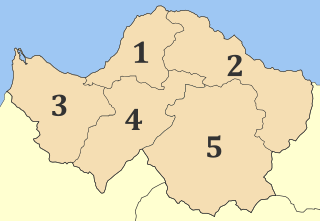In Greek mythology, Agenor ( /əˈdʒiːnɔːr/ ; Ancient Greek: Ἀγήνωρ) was the son of Antenor and Theano, [1] and was a Trojan hero.

Greek mythology is the body of myths originally told by the ancient Greeks. These stories concern the origin and the nature of the world, the lives and activities of deities, heroes, and mythological creatures, and the origins and significance of the ancient Greeks' own cult and ritual practices. Modern scholars study the myths in an attempt to shed light on the religious and political institutions of ancient Greece and its civilization, and to gain understanding of the nature of myth-making itself.

The Ancient Greek language includes the forms of Greek used in Ancient Greece and the ancient world from around the 9th century BCE to the 6th century CE. It is often roughly divided into the Archaic period, Classical period, and Hellenistic period. It is antedated in the second millennium BCE by Mycenaean Greek and succeeded by medieval Greek.
In Greek mythology, Antenor was a counselor to King Priam http://www.perseus.tufts.edu/hopper/of Troy during the events of the Trojan War.









